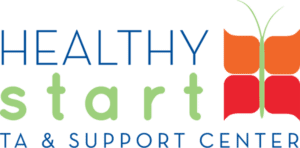Ask the Expert: The Happiest Baby: Can We Reduce Infant Crying, Boost Sleep, and Reduce Abuse, SUID, and PPD…for the Cost of Breakfast?
Crying and sleeplessness are two of the greatest challenges for new parents. Persistent crying and parental exhaustion are key triggers of infant neglect (associated with postpartum anxiety and depression) and other serious medical conditions, including SIDS/suffocation, over-diagnosis of GERD, breastfeeding failure, marital stress, parental smoking, car accidents, and possibly infant obesity.
In a paradigm shift, presenter Harvey Karp, MD, FAAP, Assistant Professor of Pediatrics at USC School of Medicine, discusses why newborns still need a protected environment (a 4th trimester) of holding and rhythmic stimulation to improve their state control and regulation.
Dr. Karp presented a novel theory that babies are born with a calming reflex (a relative off-switch for crying and on-switch for sleep) activated by imitating five specific aspects of the baby’s in-utero experience (swaddling, side/stomach, shushing, swinging, and sucking). The correct method for each step was demonstrated and examples of fussy babies being calmed in this manner were shown.
There was a brief discussion of the thousands of Happiest Baby educators teaching this work in hospitals, home visiting programs, WWIC centers, military bases, etc. Across the U.S. studies were presented, including an ongoing University of Amsterdam study of colicky babies demonstrating dramatic reduction in crying and increase in sleep and surveys showing significantly improved confidence in pregnant couples taught these techniques.
Speakers:
Harvey Karp, MD, FAAP, USC School of Medicine
Topics:
- Behavioral and Mental Health, General Information, Improved Health Outcomes For All, Infant/Child Health, Maternal Health
